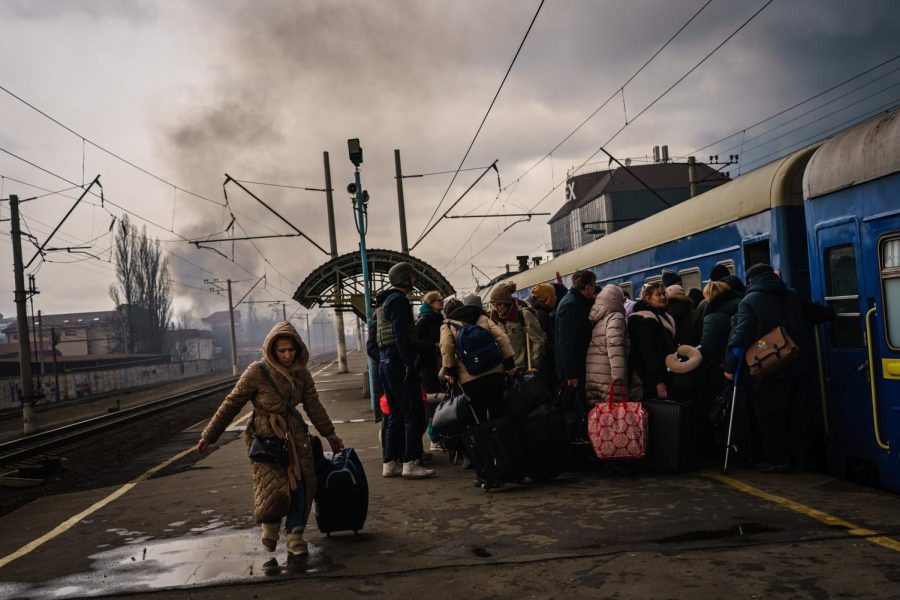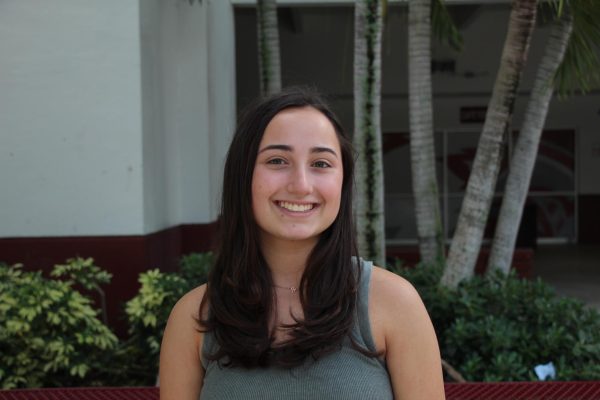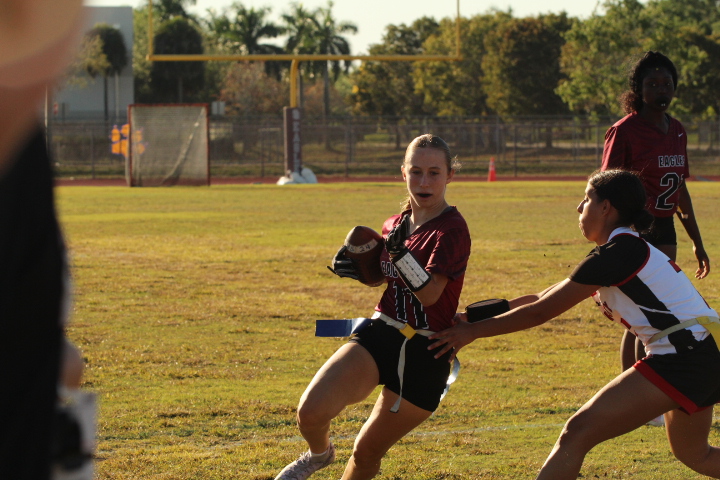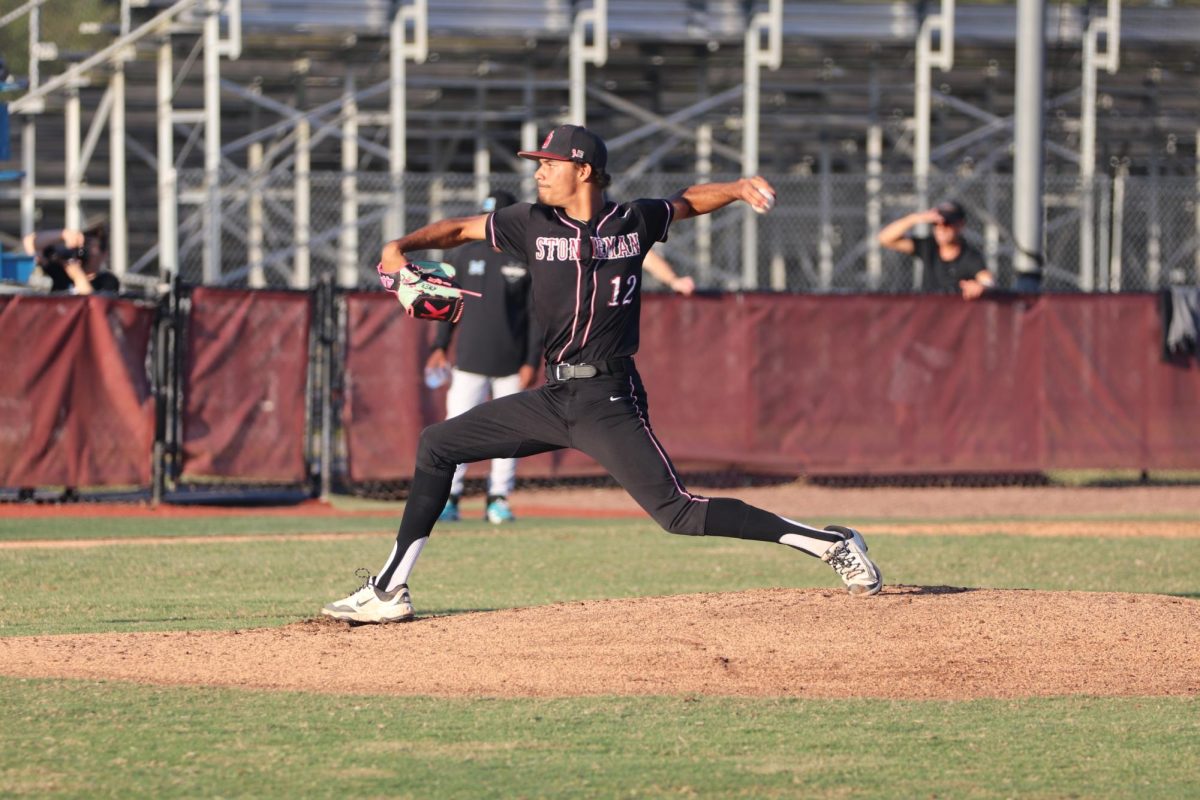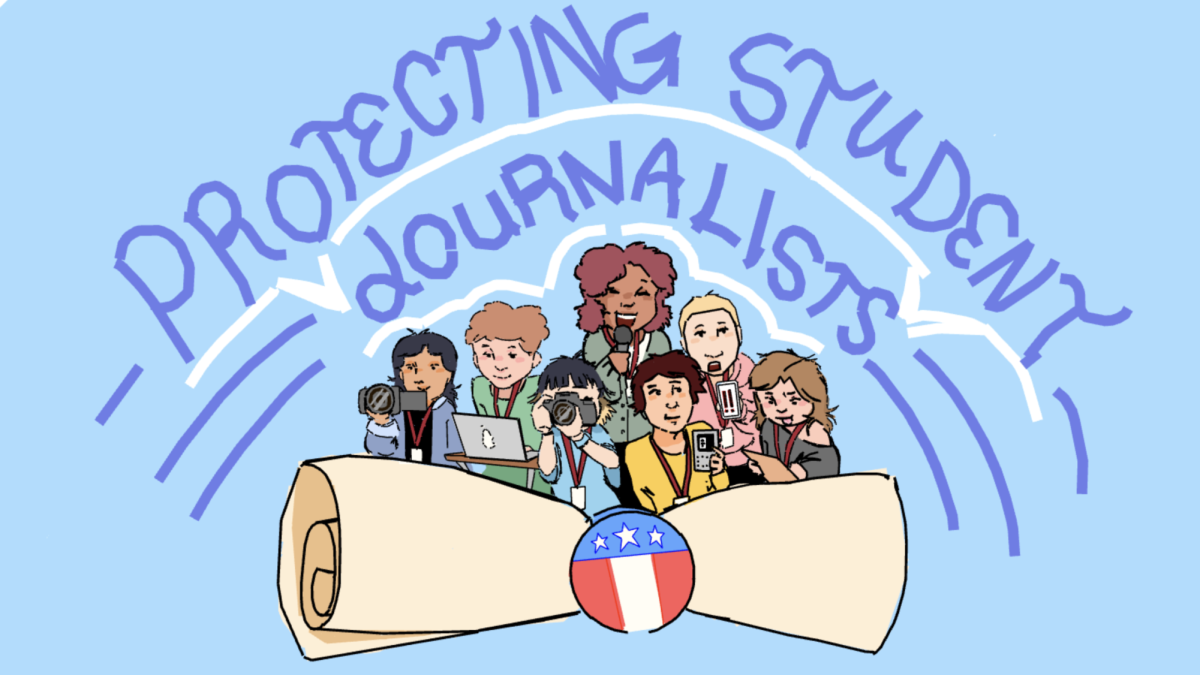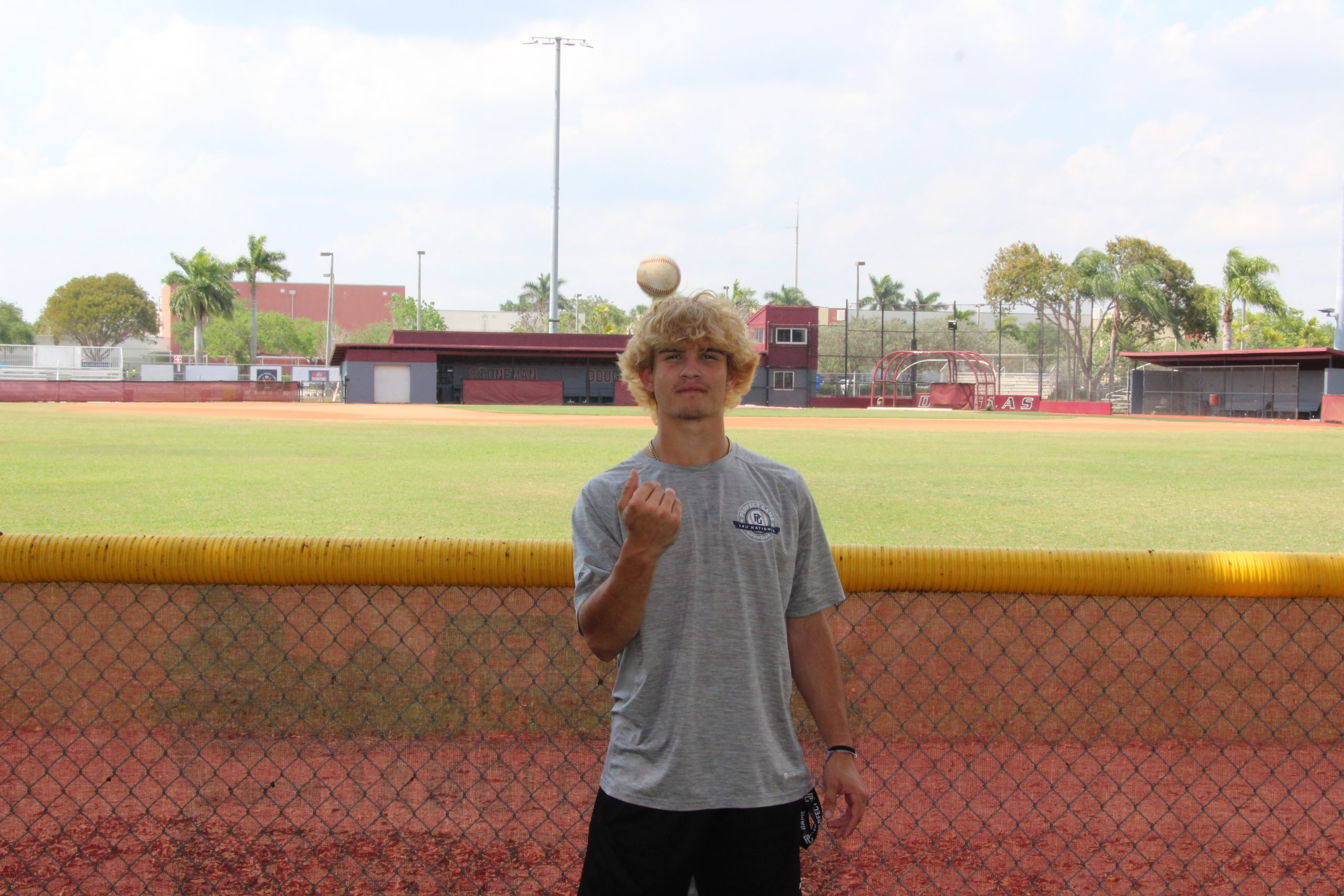MSD students overwhelmingly support Ukraine after Russia invades Ukraine
Photo courtesy of Marcus Yam/Los Angeles Times/TNS
Civilians, mostly women and children, rush to board any train car that still has any room on it, as the sounds of battle D gunfire and bombing D fighting between Russian and Ukrainian forces draw closer to the city of Irpin, Ukraine, Friday, March 4, 2022. Photo courtesy of Marcus Yam/Los Angeles Times/TNS
March 9, 2022
On Thursday, Feb. 24, Russia invaded Ukraine after high tensions caused by several months of buildup of Russian troops around the Ukrainian border. Early Thursday morning, Russian President Vladmir Putin announced a “special military operation” in Ukraine, three days after he formally acknowledged Ukraine’s breakaway regions, Donetsk and Luhansk, as independent countries. That morning, explosions were heard around the country and livestream cameras depicted Russian troops crossing the Russia-Ukraine border.
“I completely side with Ukraine in the conflict. Russia is wrongfully aggressing into Ukrainian territory,” senior Jayden Adjodha said. “It is a complete disregard of both the sovereignty of nations and human rights of people.”
In a survey of 165 Marjory Stoneman Douglas High School students, 83.6% are pro-Ukraine, while 3% are pro-Russia. Approximately 13% do not know enough about the conflict and 0.6% did not know Russia invaded Ukraine.
Russia upped their attacks on Ukraine on Thursday, March 3, a week after they invaded Ukraine. A 40-mile-long convoy carrying aid to Russian troops with artillery, armored vehicles and tanks is headed to Kyiv, the capital of Ukraine, though the United Kingdom of Great Britain and Northern Ireland intelligence shows it has largely remained in place for several days. The convoy is currently 19 miles away from Kyiv. U.S. intelligence on March 4 suggests that direct attacks and the blowing up of a bridge stalled the convoy.
On March 3, France warned the “worst is yet to come” in Ukraine, as a senior U.S. defense official expressed concern that Russia is seemingly willing to strike “civilian infrastructure.” The United Kingdom defense ministry said that Russia is targeting populated areas in Ukraine, likely to break Ukrainian morale, on March 6.
“I believe Russia is in the wrong in the conflict. They invaded Ukraine when the country had done nothing to provoke it, because they believe they have a rightful claim to the land,” freshman Angelina Quinn said. “Russia has been instigating the U.S. and its allies for weeks with the looking threat of a Ukrainian invasion, despite no country taking any action against Russia at that point.”
On March 4, Russian forces occupied Europe’s largest nuclear power plant located in Ukraine. The incident sparked immediate international condemnation. A fire occurred at the facility as fighting was taking place, though the fire was extinguished and radiation levels appear normal, according to the Pentagon and Ukrainian officials. A U.S. senior defense issue expressed deep concerns for Russia’s intentions with the plant and added that the U.S. does not know the expertise of the Russians in control of the planet.
“No country besides Russia has ever fired upon an atomic power plant’s reactors. The first time, the first time in history,” Ukrainian President Volodymyr Zelenskyy said in a Facebook post.
This comes just days after Russia captured Chernobyl, where the world’s worst nuclear disaster occurred in 1986. Saturday Night Live poked fun at this.
“Said Ukrainians, ‘Oh no, don’t take that,” Weekend Update co-host Colin Jost said. “Capturing Chernobyl is like landing an audition for Harvey Weinstein now.”
Zelenskyy has accused Russia of intentionally firing at the nuclear power plant. He repeated a plea on March 3 to the North Atlantic Treaty Organization to establish a no-fly zone over Ukraine, saying that it would be the “most important step” because of the “incessant bombing” by Russia, as head of NATO reported that Russia is using cluster bombs in Ukraine. On March 4, Zelenskyy once again urged world leaders and officials to stop Russia “before this becomes a nuclear disaster” after Russia took control of the plant.
“If you can’t give Ukrainians a date, how long do you need? How many people should be blown up?” Zelenskyy said in a news conference. “How many arms and legs and heads should be severed, so that you understand? I will go and count them, and we will wait until we have a sufficient number […] If you don’t have the strength to provide a no-fly zone, then give me planes. Would that not be fair?”
The death toll is conflicting. Ukraine’s State Emergency Service reported more than 2000 deaths of Ukrainian civilians, though the claim is not verified. The report was deleted, though the service did not provide a reason. The United Nations’ death toll is lower at over 1200, though they added that the real toll is likely to be “much higher” than UN’s reports. Most deaths were due to explosive weapons with a wide impact area, like shelling and air strikes.
White House press secretary Jen Psaki said on Feb. 28 that U.S. troops creating a no-fly zone in Ukraine is “not a good idea,” adding in an interview that an implementation of a no-fly zone by the U.S. military “would essentially mean the U.S. military would be shooting down Russian planes.” U.S. Secretary of State Antony Blinken confirmed that the White House did not want to make this move, saying that it could lead to a “full-fledged war in Europe.”
NATO Secretary General said on March 2 that NATO allies “do not seek conflict with Russia,” in response to Ukraine’s plea for a no-fly zone. On March 3, European Council President Charles Michel expressed that while establishing a no-fly zone is NATO’s decision, it would be “one step too far” and contained a “real risk of escalation and a real risk of a possible third international war.” He stressed that the EU is not at war with Russia and added that Russia has nuclear weapons. Ukraine’s UN ambassador has called for urgent discussion on the no-fly zone.
“I do think [establishing a no-fly zone] is a double-sided issue here. I understand and see the concerns that the European Council has because establishing a no-fly zone could possibly escalate the conflict rather than actually help the situation,” freshman Isabel Lopez said. “But then, at the same time it’s only been the second week of Russia’s invasion and they’ve already done so much damage to Ukraine and its people. We know that Russia and Vladmir Putin are powerful and are strong forces. So, it is also possible that establishing a no fly zone could help Ukraine in its fight against Russia.”
The West seems largely against implementing and enforcing a no-fly zone over Ukraine, though the US is working with Poland on the possibility of providing fighter jets to Ukraine. Zelenskyy is pushing for eastern European countries to send fighter aircraft to Ukraine.
Why is Russia invading Ukraine?
Russia has provided a variety of reasons as to why they are invading Ukraine. First, Putin cited his goal of protecting ethnic Russians living in Ukraine, particularly in its breakaway regions, from bullying and genocide. However, there currently is no evidence suggesting ethnic Russians living in Ukraine have been subjected to bullying and genocide.
“Russia has no right to invade Ukraine,” freshman Sabrina Libby said. “If they were worried about ethnic Russians in Ukraine, all they had to do was open the border for Russians to move back into Russia if they felt the need to. Ukraine does not wish to be part of Russia and that’s that.”
Putin also cited his desire for “demilitarization and denazification” of Ukraine. He added onto this on Friday, Feb. 25, referring to the Ukrainian government as “neo-Nazis:” people that believe in Nazi ideology post-World War II. However, Zelenskyy is Jewish and has relatives who died in the Holocaust. The Ukrainian government and the President do not support Nazi ideology.
Additionally, on Tuesday, March 1, Russian airstrikes that targeted Kyiv hit the Babyn Yar Holocaust memorial site, killing 5. The Chief Rabbi of Ukraine, Moshe Reuven Azman, condemned this attack, adding that three missiles hit the area.
“Putin seeks to distort and manipulate the Holocaust to justify an illegal invasion of a sovereign democratic country is utterly abhorrent,” the memorial’s Advisory Board Chair Natan Sharansky said in a statement published on the memorial’s website. “It is symbolic that he starts attacking Kyiv by bombing the site of the Babyn Yar, the biggest of Nazi massacre.”
Another reason Putin has cited as to why Russia invaded is he does not want Ukraine to join the North Atlantic Treaty Organization. In Jan. 2021, Zelenskyy appealed to President Joe Biden to let Ukraine join NATO. Starting in the spring of 2021, Russia began massing troops near Ukraine’s borders, though they denied any intention to invade Ukraine. On Dec. 17, Russia requested that NATO bar Ukraine from ever joining. Putin believes that NATO further expanding eastward, particularly in Ukraine, are a threat to Russia’s borders because of the “deployment of weapons systems that threaten [Putin and Russians] in close vicinity to Russian territory.”
“I feel like it’s obvious that Russia is definitely in the wrong for its invasion of Ukraine, though it isn’t very surprising why. The Russian Government likes to blame the invasion due to ‘the safety of the Russian People’ and ‘the nazification of Ukraine’ but I firmly believe that these are lies and excuses from what I believe is their actual reason. In my opinion and from what I know, Russia invaded Ukraine due to its sour relationship over time and the fact that Ukraine was on its way to join the NATO alliance,” senior Nicolas Negreira said. “Ukraine has recently been very pro-western and has been rallying to join NATO for some time, and now that it was finally close to doing as such, Russia saw that it had a limited amount of time to control what was once theirs. Ukraine being right next to Russia and its history with the USSR doesn’t help that the Ukrainian government was opposed to Russian rule and control, and if they joined NATO, Russia would lose that influence they had over the small country. Therefore, they invaded and knew that NATO couldn’t deploy troops without it being an act of war against all of Europe.”
Impact on Ukranians
The U.S. offered to evacuate Zelenskyy on Feb. 26, which the Ukrainian president refused, drawing praise for his reasoning. He released a video on Feb. 26, showing that he is still in Kyiv, after Russian disinformation was spread that he had fled Kyiv.
“The fight is here; I need ammunition, not a ride,” Zelenskyy said.
Zelenskyy reiterated this on March 7, in a speech addressing Ukraine and its people. He posted the video of his speech in his office in Kyiv.
“Now I will say one thing: I stay here. I stay in Kyiv,” Zelenskyy said. “On Bankova Street. I’m not hiding. And I’m not afraid of anyone.”
Zelenskyy, a 44-year-old Jewish former actor and comedian with two children, has drawn praise from around the world for his remarks and leadership regarding the invasion of Ukraine.
“I believe that President Zelenskyy has done an excellent job demonstrating leadership during the conflict,” an unnamed freshman said in the survey. “He gave the Ukrainian people morale to continue fighting, even during these difficult times. He showed what it means to be a leader by putting his people first. He was seen defending his own country firsthand, even though he is one of the top targets of Russia.”
However, Zelenskyy brushed off the praise on March 1, echoing his past remarks that presidents should not be idolized.
“I’m not iconic,” Zelenskyy said in an interview with CNN and Reuters. “I think Ukraine is iconic.”
On March 3, Zelenskyy said that he and Ukraine will not stop fighting.
“President Zelenskyy has proven to be a leader that truly cares for the well being of the country,” senior William Adam said. “Not many leaders would be willing to put themselves on the front lines to protect the country they serve.”
While over one and a half million people have fled Ukraine, men from ages 18 to 60 have been forbidden to leave Ukraine in case they are called to fight. Additionally, many Ukranians are voluntarily choosing to remain in Ukraine and fight.
“I have family in both Ukraine and Russia, and they’re both affected terribly,” sophomore Jonathan Chervinsky said. “Nobody in Russia actually supports what Putin is doing, at least according to family.”
Many believe Putin regarded this as a fairly simple operation to dominate Ukraine but Ukrainian troops and citizens have put up a strong fight, in clear acts of nationalism, with the Washington Post publishing an article titled “The war in Ukraine isn’t working out how Russia intended.”
“When I heard about the various ways that the Ukrainian people displayed nationalism during this time, I was very impressed and in awe of how the Ukrainian people rose to the challenge and showed a great deal of loyalty to their country,” Lopez said. “This is definitely not an easy decision to make and I have major respect for Ukraine and its people.”
A Ukrainian woman went viral for confronting armed Russian soldiers and telling them to put sunflower一the Ukrainian national flower一seeds in their pockets so that when they died on Ukrainian land, flowers would grow.
“I fully support [Ukrainians fighting back], and I think it is entirely justified. Nationalism is often viewed in a negative light, but Ukraine’s very existence is slowly being encroached upon by Russians; should the Russians succeed in their war, Ukraine will become a puppet of Russia, and potentially even be annexed like Crimea,” senior Logan Walsh said. “The people’s nationalism and defense of their home country with everything they have is admirable and, in a somber way, quite amazing to see – having so many people working toward a common goal would be amazing, if not under these circumstances.”
13 Ukrainian soldiers stationed on Snake Island became an internet sensation when confronted by a Russian warship. The warship told them to surrender now before “needless” lives will be lost. The soldiers answered with, “Russian warship, go f**k yourself.” The soldiers were originally presumed to be dead, though they have since been confirmed to be alive by the Ukrainian navy.
A Ukrainian farmer stole a Russian tank with his tractor, with the video showing someone racing after the tractor. Another Ukrainian came across a broken-down armored Russian vehicle and offered to “tow them back to Russia.” A Lviv resident told Anderson Cooper that “Putin can go f**k himself.”
“Ukrainians the past week have demonstrated the patriotism and nationalism that many countries have been wanting from their citizens for the better half of a decade,” Adjodha said.
Refugees from Ukraine have been a large focus and cause of concern, especially for Eastern European countries. The Czech government declared a state of emergency on March 3, anticipating an influx in Ukrainian refugees. The UN Refugee Agency called the situation potentially to become “the biggest refugee crisis this century.”
Worldwide Response to the Invasion
Zelenskyy again voiced his desire for Ukraine to be admitted into NATO on Feb. 19, 2022. Additionally, on Feb. 28, he asked the European Union to admit Ukraine into the EU “immediately.” The EU chief said on March 3 that Ukrainians “belong in the European family.” Zelenskyy pleaded for more international aid in an interview on March 2.
While his requests have not yet been made, Western allies, intergovernmental organizations, private companies and even sports leagues are providing aid to Ukraine and placing sanctions on Russia.
NATO has condemned Russia’s invasion of Ukraine and is supporting its members in delivering humanitarian and non-lethal aid. The UN General Assembly overwhelmingly voted to denounce Russia for its actions.
However, some MSD students hope that these IGOs will do more to help Ukraine, with 33.9% of students supporting the current response by NATO, the UN and the EU. 52.7% of students do not know enough about their responses.
Sophomore Maya Gordon hopes NATO and the UN will “actually” take action. In contrast, some MSD students support the current actions taken by certain IGOs.
“I understand why they haven’t intervened, a world war is something nobody wants to have or with the threat of nukes if they do by Russia,” sophomore Natalie Crisostomo said. “Politically, I think they took the right decision to not intervene until Russia, if they ever attack Poland or any other NATO countries nearby. But morally it’s heartbreaking, all these countries have the power to save all the innocent lives being lost all the homes being bombed and it hurts my heart to see.”
On Feb. 26, the US, the EU, the United Kingdom and Canada announced they would disconnect certain Russian banks from SWIFT, a messaging service that connects financial institutions around the world.
Germany halted a gas pipeline project from Russia in an agreement with the U.S. The U.S. Treasury Department prohibited transactions with the Central Bank of Russia, the National Wealth Fund and the Ministry of Finance. There’s bipartisan support in the U.S. to ban Russian oil imports, though no action has yet been made.
“I don’t want a war, especially not a world war, but something definitely needs to be done about Russia. I’m not a military expert, and I know Russia has nuclear bombs,” an unnamed sophomore said in the survey. “Although Russia is a main oil supply for most of the world, we should cut off trade with Russia, and so should the rest of the world. It would also help with shifting to cleaner energy sources.”
The United Kingdom banned Russian ships from UK ports and also added economic sanctions against key Russian financial institutions. Several NATO countries have limited Russia’s ability to transact in foreign currencies, including the dollar and euro.
Japan agreed to freeze the assets of Russian leaders and some banks, as well as freezing Russia’s foreign reserves in yen.
Switzerland, a historically neutral country, also agreed to join Russian sanctions efforts. They are also sanctioning Russian oligarchs and Belarussian officials.
The Department of Transportation announced they will close the U.S. airspace to Russian planes.
“I think [the U.S.] did what they did to Russia so no more violence would happen, but they are also hurting the innocent people of Russia,” freshman Raymond Hu said.
The financial sanctions had a drastic effect on Russia’s economy. The ruble, Russia’s form of currency, is currently worth less than a penny. Some have also noted that the ruble is now also worth less than the popular game Roblox’s form of currency, Robux.
“I think Russia invading Ukraine was a terrible moral and strategic decision,” freshman Dominic Fernandez said. “Russia’s currency is now worthless, they are draining resources and sanctions on energy are raising the price of energy.”
IKEA temporarily suspended all operations in Belarus and Russia. Formula One terminated their Russian Grand Prix deal and Russia was suspended from the Paralympics. On Feb. 28, FIFA and UEFA suspended all Russian international and club teams from their competitions. Apple stopped selling its products in Russia. Pope Francis expressed his support for peace in Ukraine.
Ukraine sued Russia on Feb. 28 in the International Court of Justice. The case will be heard on March 7 and 8. The International Criminal Court announced the launch of a criminal investigation following Russia’s invasion of Ukraine.
President Biden ordered an additional 3,000 soldiers to Poland, though the U.S. has not sent troops into Ukraine. Currently, there are 14,000 US troops activated in response to Russia’s invasion, though the Pentagon may consider more U.S. troops to Europe.
“I feel right now the U.S. has a good response, I don’t believe we should send troops into Ukraine and get involved,” Quinn said. “However, I am glad [the US] placed sanctions on Russia and are working to help Ukraine in other ways.”
The sentiment that the U.S. should not send troops into Ukraine is echoed by several other anonymous students, with one chiming in that the US getting our troops involved may be detrimental to the US and other NATO countries, though most supported getting involved in other ways.
Widespread Coverage of the War
The war has been largely-covered by the media and social media users. It can seem confusing or overly complex to some MSD students.
“I feel like [the conflict is] a very complex issue that is hard to cover and explain to someone who doesn’t follow international politics and international relations very well,” senior Alyssa Robinson said. “The main conflict does date back a very long time, but I do feel like the media could do a better job explaining to the everyday person the intricacies of what is going on. Overall, though, I think [the media is] doing a good job of keeping us updated on how it’s progressing.”
Because the war is so high-profile, it has frequently come up in school, with 67.3% of MSD students reporting that at least one of their teachers has taught about/mentioned the situation in Ukraine.
Some ways to help Ukraine include donating to humanitarian aid groups in Ukraine, donating to Etsy creators in Ukraine, donating to Ukrainians who run Airbnbs, supporting Ukraine-based news organizations like the Kyiv Independent, The New Voice of Ukraine and joining or organizing a peace protest near you. Staying informed and reporting Russian disinformation when you see it is another way to support Ukraine.

